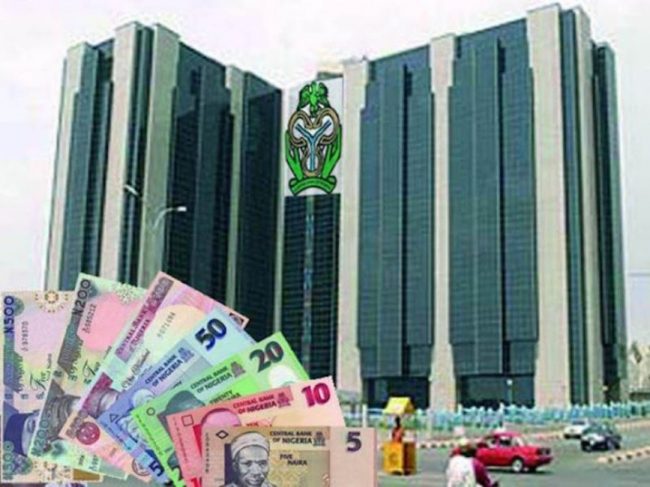

The outcome of a recent Central Bank of Nigeria (CBN) stress test released on Thursday, has shown that seven commercial banks’ funding positions are inadequate.
The financial stability report signed by CBN Director, Financial Policy and Regulation Department, Kelvin Amugo, rrevealed that in the less than 30-day period analysis, seven banks were not adequately funded, while in the 31 to 90-day period, nine banks had funding gaps.
The apex bank report, however, said the cumulative position for the industry showed an excess of N4.8 trillion assets over liabilities.
The seven banks were, however, not named by the apex bank.
Nigeria has 24 banks.
The report, which covered the period ended December 2018, showed that six banks accounted for 82 per cent (N252.00 billion) of total placements and 86 per cent (N 266 billion) of total takings, of which 71 per cent (N190 billion) was provided by the top four placers of funds.
Also Read: Staco Insurance In N200m Fraud Mess, Police Charge Firm, CEO, Others To Court
The stress test result revealed that, after a one-day run scenario, the liquidity ratio for the industry declined to 34.69 per cent from the 51.87 per cent pre-shock position and to 17.55 and 13.48 per cent after a five-day and cumulative 30-day scenarios.
The result also revealed that, under five-day and cumulative 30-day run scenarios on the banking industry, liquidity shortfalls declined to N1.58 trillion and N1.98 trillion.
The results of the stress test of default in exposure to the oil and gas sector showed that the banking industry could withstand up to 50.00 per cent default as the post-shock Capital Adequacy Ratio (CAR) remained at 10.24 per cent.
The results of the stress tests on the net position of interest sensitive instruments showed that the banking industry would maintain a stable solvency position to interest rate shock of up to 1000 basis points downward shift in yield curve as the post-shock CAR declined marginally from 15.26 to 13.41 per cent.
The industry pre-shock assets and liabilities maturity profile at end-December 2018 revealed that the shorter end of the market less than 90 day buckets were adequately funded.
Contagion risk from the unsecured transactions in the interbank market was moderate at end- December 2018. The results of simulated conditional counter-party default from unsecured interbank loans indicated low risk as the banks, except two, maintained post-shock CAR above 10 per cent.
The Implied Cash Flow Analysis (ICFA) assessed the ability of the banking system to withstand unanticipated substantial withdrawals of deposits, short-term wholesale and long-term funding over five days and cumulative 30 days, with specific assumptions on fire sale of assets.
The test assumed gradual average outflows of 3.8, 5.0 and 1.5 per cent of total deposits, short-term funding and long-term funding respectively, over a 5-day period and a cumulative average outflow of 22.0, 11.0 and 1.5 per cent of total deposits, short-term funding and long-term funding respectively, on a 30-day balance. It also assumed that the assets in Table 3.10 would remain unencumbered after a fire sale.
Also, reported cases of fraud and forgeries by banks increased to 25,029 at end-December 2018 from 20, 774 at end-June 2018.
However, the total amount involved decreased to N18.94 billion at end- December 2018 from N19.77 billion at end-June 2018.
Similarly, actual losses declined to N2.21 billion at end-December 2018 from N12.10 billion in the first half of 2018.The total number of reported fraud cases in OFIs stood at 754 at end-December 2018, while the actual loss of N120.98 million was recorded during the same period.





















